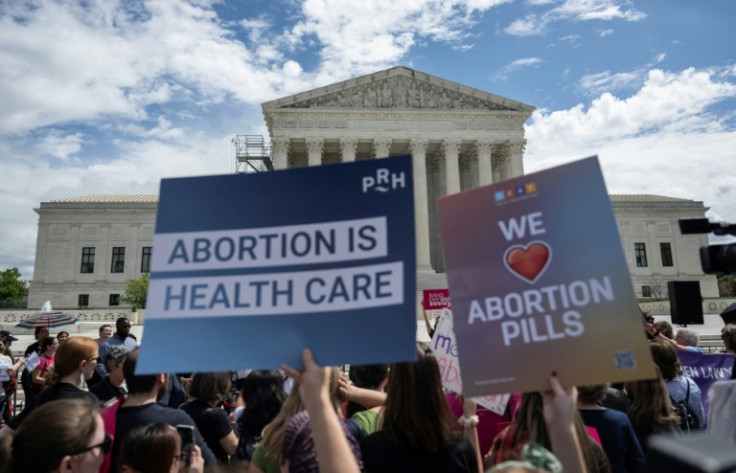
Colorado has officially joined seven other states in advancing efforts seeking to enshrine abortion rights in the state, looking to be formally debated and voted on the ballot in November.
Concretely, Coloradans for Protecting Reproductive Freedom kicked off various events across the state to protect abortion rights. The campaign launch coincides with the 51st anniversary of the landmark 1973 Roe v. Wade Supreme Court decision, which legalized abortion rights throughout the U.S.
The group's effort means that Colorado is now the eighth state where reproductive rights groups have advanced efforts seeking to enshrine abortion rights in the state constitution via a citizen-led ballot initiative in 2024. Other states where similar efforts are underway include Florida, Arizona, Montana and Missouri.
However, two factors make Colorado's pro-choice movement particularly noteworthy— its history with the movement and legal context, and its increasing Latino population.
Colorado is one of six states where there are no gestational limits at all for women seeking abortion care. As a result, the state has become a safe haven for women who live in highly conservative states where abortion is strictly restricted or outright illegal.
Similarly, the state's growing Latino population could increase the visibility and support for the movement. In the 2020 census, Colorado was viewed as one of the fastest-growing states, with a Latino community comprising around 20% of the state's population— the largest minority in the state. This is particularly important considering more than half of Hispanics in the U.S. say abortion should be legal in all or most cases, according to a Pew Research Center study.
Organizers behind the Colorado amendment effort say it's crucial to formally enshrine the rights so future lawmakers don't have the opportunity to undo the robust protections the state offers women seeking abortions and other reproductive care.
"We've always been a national leader on this issue. We've always been a place where people who needed abortion care were able to come," Laura Chapin, a spokesperson for the coalition, told NBC News.
Unlike other states, the decision process for determining the proposed amendment was settled before signature collection efforts got underway.
The group must now collect just over 124,000 valid signatures by April 26 to qualify for the November ballot. That total must include 2% of the total registered voters in each of Colorado's 35 state Senate districts.
If they are successful, the measure would require the support of 55% of voters in November— not just a simple majority, as is the case in many other states— to pass.
Chapin also expressed conviction that the group would not only meet all the requirements to get on the ballot, but would ultimately win in November.
"We are confident," she said. "Colorado is a state that strongly supports abortion rights."
Colorado is a solidly blue state. Four years ago, abortion rights supporters defeated a proposed ballot initiative that sought to restrict abortion rights in the state 59% to 41%.
If the group gets its way in the upcoming elections, the proposed amendment would declare formally that "the right to abortion is hereby recognized" and that "government shall not deny, impede or discriminate against the exercise of that right.
The proposal adds that the government may not prohibit health insurance coverage for abortion, including insurance plans for public employees and publicly funded insurance plans.
© 2025 Latin Times. All rights reserved. Do not reproduce without permission.





